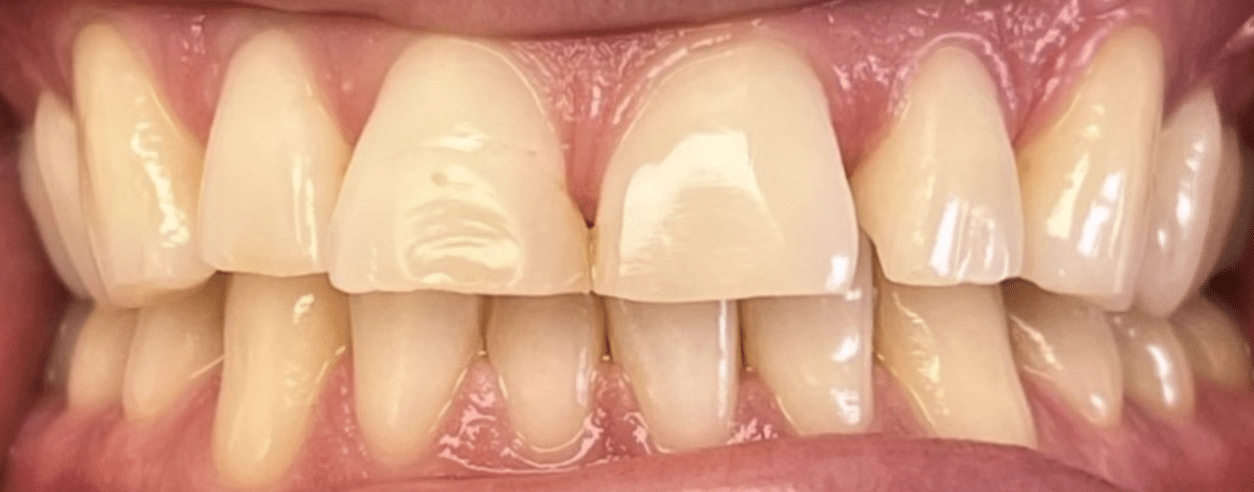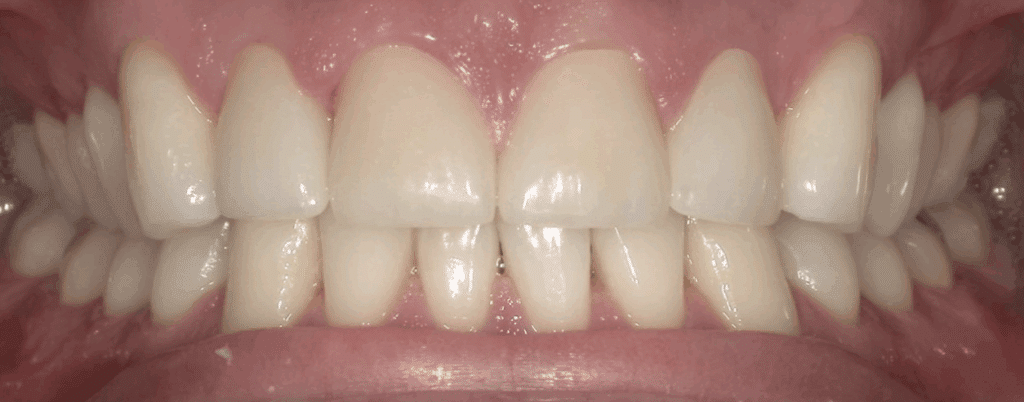BEST Bridges and Dental Crowns Near You
Dental crowns and bridges are powerful restorative solutions designed to repair, replace, and protect teeth that are damaged or missing. Whether you’re looking to restore a broken tooth or fill the gap left by missing teeth, these treatments offer both functional benefits and aesthetic improvement. At Norton Dental Arts, we provide advanced, personalized solutions using the latest technology and materials to ensure your smile is strong, beautiful, and long-lasting.
What Are Dental Crowns?
A dental crown is a tooth-shaped cap placed over a damaged or weakened tooth to restore its strength, shape, and appearance. Crowns are custom-made to fit your bite and match the color of your natural teeth, ensuring they blend seamlessly into your smile.
When Are Crowns Needed?
Crowns are recommended in several scenarios, including:
- A cracked tooth that is broken, or severely worn down
- A large dental filling with little natural tooth structure left
- A tooth that has undergone a root canal
- You want to improve the appearance of a discolored or misshapen tooth
Types of Crowns We Offer
At Norton Dental Arts, we offer several types of crowns based on your needs:
- Zirconia Crowns: Ultra-strong and ideal for molars.
- Emax Crowns: Translucent and aesthetically pleasing, perfect for front teeth.
- Porcelain-Fused-to-Metal Crowns (PFM): Used in rare cases when extra strength is needed.
- Temporary Crowns: Provided during the lab phase for comfort and appearance.
Crowns have evolved significantly over the years. Previously, crowns were often made of porcelain fused to metal, which was durable but sometimes showed a metal base at the bottom. While strong, the porcelain could become brittle over time. Today, zirconia is the go-to material due to its strength and cosmetic appeal, eliminating the need for visible metal and offering better long-term results.
Crowns typically require two visits. During the first visit, we reshape the tooth, take impressions, and place a temporary crown. After your custom crown is ready, it will be bonded into place and adjusted for comfort.
What Are Dental Bridges?
A dental bridge is used to replace a missing tooth by anchoring to two natural teeth on either side of the gap. The two natural teeth are crowned, and these crowns hold a replacement tooth in place. In some cases, if multiple teeth are missing, additional teeth may be anchored to the adjacent ones to create a longer bridge or dental implants. This solution restores the function of your bite, helps prevent other teeth from shifting, and improve the appearance of your smile.
When multiple teeth are missing, a bridge can still be used, but the span may be longer. In these cases, additional support may be needed by anchoring the bridge to more teeth or using dental implants for added stability. This ensures the bridge is securely in place and functions effectively.
When Are Bridges Needed?
Bridges are ideal for replacing one or more missing teeth. They can:
- Prevent surrounding teeth from shifting
- Restore your ability to chew and speak properly
- Maintain the shape of your face and improve bite alignment
In some cases, it might make more sense to go with individual implants instead of a bridge. For instance, if a patient is missing several teeth but has enough healthy bone, individual implants may be a better solution, as they don’t rely on adjacent teeth for support. On the other hand, bridges can be a more cost-effective option when multiple adjacent teeth need to be replaced, especially if the patient already has crowns on those neighboring teeth. The decision between bridges and implants depends on factors like bone health, overall dental health, and financial considerations.
Types of Bridges We Offer
- Traditional Bridges: Supported by natural teeth. These are used when there are adjacent teeth on both sides of the gap.
- Implant-Supported Bridges: Supported by dental implants for a more stable and long-lasting solution. Ideal when there are no natural teeth to anchor a traditional bridge.
- Temporary Partial Dentures (Flippers): Used as a temporary option while permanent restorations are being made. These provide a short-term solution to restore function and appearance.
- Full-Arch Options: Like the All-On-4 dental implants, which replace an entire arch of teeth. This option is often used when multiple or all teeth in an arch are missing, providing a full and functional restoration.
What to Expect When You Get Affordable Crowns Near You
The process of getting a crown or bridge involves several key steps:
- Preparation: Your tooth (or teeth) is reshaped to make space for the restoration.
- Impressions: We take digital or traditional impressions to ensure a perfect fit for your crown or bridge.
- Temporary Restoration: A temporary crown or bridge is placed while your permanent one is being made.
- Final Placement: Once the custom restoration is ready, it will be bonded into place and adjusted for comfort.
The entire crown or bridge procedure typically takes two visits. During the first visit, we reshape the tooth, take impressions, and place a temporary restoration. This usually takes about an hour and a half to two hours. Once your permanent restoration is ready, we schedule a follow-up visit to bond it into place and make any necessary adjustments for comfort and fit. At Norton Dental Arts, we use the latest technology, such as digital scanners and high-strength ceramics, to ensure your restoration is precise and durable.
Bridges vs Implants vs Dentures
When choosing between bridges, implants, and dentures, the decision depends on various factors like the number of teeth missing, bone structure, and overall dental health.
- Bridges vs Implants: Bridges are a great option when you have healthy teeth on both sides of the gap. They are anchored to these natural teeth or implants, offering a stable and functional solution. On the other hand, implants are ideal if you don’t have adjacent teeth to support a bridge or if you want a more permanent, independent solution. Implants are surgically placed into the jawbone, making them a lasting and natural-feeling option, though they do require more time for healing and a higher investment.
- Bridges vs Dentures: While bridges are fixed and help restore function without affecting adjacent teeth, dentures are removable and suitable for replacing multiple or all missing teeth. Dentures are often preferred for patients who are missing an entire arch of teeth, offering a versatile solution. However, unlike bridges, dentures may require adjustments over time to maintain comfort and fit.
The best option for you will depend on your specific needs. Whether it’s the stability and permanence of implants, the cost-effective convenience of bridges, or the flexibility of dentures, each solution provides effective ways to restore your smile and oral function.
Case Study: Cosmetic Crowns for Gaps and Discoloration
Patient Overview:
A 27-year-old male patient sought cosmetic improvement for his smile, specifically concerned about the noticeable spacing between his upper front teeth and the discoloration that had worsened over time. After trying bonding in the past, he wanted a more permanent and aesthetically consistent solution.
Initial Findings:
The patient’s primary concern was the spacing between his upper front four teeth and a color mismatch due to severe discoloration, aggravated by staining from coffee and tea. His previous bonding was chipped, uneven, and discolored, leading to frustration with the results. Additionally, the patient exhibited moderate to severe bruxism, which caused visible wear on his anterior teeth.
Recommended Treatment Plan:
To address the spacing and discoloration, we recommended porcelain crowns for the upper four front teeth. Given the patient’s bruxism, we selected a durable, strong material to prevent wear and chipping. We also provided a custom night guard to protect the crowns from grinding.
Before

After

Completed Procedures:
- Comprehensive evaluation, including x-rays and an oral cancer screening
- Diagnostic wax-up and impressions to pre-visualize the outcome
- Shade selection after in-office bleaching of adjacent teeth
- Placement of four anterior porcelain crowns
- Delivery of a custom night guard
Post-Treatment Care Plan:
- Biannual cleanings and routine oral hygiene assessments
- Continued use of bleaching trays to maintain the shade
- Consistent use of the night guard to manage grinding
Outcome:
The patient was thrilled with the results. His new crowns not only closed the gaps but also restored uniformity and resisted staining. He reported increased confidence, especially in social settings, and was highly satisfied with his transformation. This case illustrates how crowns can provide both cosmetic and functional benefits, with attention to material strength and aesthetics ensuring long-term success.
How Much Do Dental Crowns Cost in Florida?
The cost of dental crowns typically ranges from $1500 to $1950, depending on factors such as the materials used and the complexity of the procedure. For bridges, the cost varies based on the number of teeth being replaced and whether implants are involved.
Get Affordable Dental Crowns & Bridges in Florida
Whether you’re looking to restore a single tooth, rebuild your bite, or transform your smile, Norton Dental Arts offers customized solutions designed to meet your needs.
Contact us today to schedule your consultation and begin your journey toward a stronger, healthier smile. Let’s build a smile that’s as strong as it is beautiful. We also offer emergency dentist Delray Beach services to address urgent dental needs when they arise.
Frequently Asked Questions About Affordable Dental Crowns Near You
Crowns and bridges offer a wide range of benefits that extend beyond simple dental restoration. Crowns, for instance, provide essential protection and improved durability for weakened or damaged teeth, whether it is caused by decay or after a root canal treatment. They not only reinforce the structure of the tooth, but also enhance overall aesthetics by restoring natural tooth shape and alignment. Depending on your specific preference and needs, crowns can be crafted from various material that provide strength and aesthetics, including:
- Durable gold alloys
- Ceramic materials that match your natural tooth color seamlessly
- Porcelain bonded to metal alloy that provide strength and aesthetics combined
Bridges, on the other hand, restore dental functionality by replacing missing teeth. They help by improving chewing efficiency and speech clarity, which may have been compromised due to missing teeth. By evenly distributing bite pressure across surrounding teeth, bridges promote comfortable eating and prevent surrounding teeth from shifting. Additionally, bridges contribute substantially to improving an individual’s smile and their overall aesthetics by enhancing both dental function and appearance.
Whether you choose a crown to protect and improve the appearance of a damaged tooth or a dental bridge to restore dental function and appearance, these dental solutions we provide at Norton Dental Arts offer various benefits that we customize to enhance your oral health and overall well-being.
While some offices offer same-day crowns or bridges, we recommends using a temporary restoration instead. The benefit of a temporary crown or bridge is that it gives your dentist time to ensure a perfect fit and a high-quality, durable result. Same-day crowns, while convenient, may not always provide the same level of precision and material quality. At Norton Dental Arts, we prefer to send your impressions to a specialized lab where skilled technicians create a custom restoration. In the meantime, a temporary crown or bridge allows you to maintain a functional and comfortable smile while your permanent restoration is being crafted. This approach ensures that your final crown or bridge fits properly, lasts longer, and blends seamlessly with your natural teeth.
After getting a crown or bridge, we advises paying attention to a few key factors to ensure the restoration stays in good condition:
- Bite Issues: If you feel discomfort or notice that your bite doesn’t feel right, it’s important to contact the office. Sometimes, slight adjustments are needed to ensure everything aligns properly.
- Sensitivity: Some sensitivity to hot or cold is normal right after the procedure, but it should subside as your gums heal. If sensitivity persists, it may indicate that the restoration needs adjustment.
- Cleaning Around the Restoration: Proper care is essential. Make sure to floss around the crown or bridge using specialized floss (like super floss) to prevent food buildup or plaque around the edges, which can lead to tooth decay or gum issues.
- Temporary Crowns: If you have a temporary crown, avoid hard or sticky foods as they can cause it to loosen or break before your permanent restoration is ready.
Both the crown and bridge procedures are performed under local anesthesia, so you will be comfortable during the procedure. Most patients report little to no discomfort. After the procedure, mild sensitivity may occur but typically subsides within a few days.
With proper care, crowns and bridges can last between 10 and 15 years, or even longer. The longevity of your restorations depends on factors like:
- Oral hygiene habits
- Whether you grind your teeth
- Diet and lifestyle (sticky or hard foods can wear them down more quickly)
Maintaining your crowns and bridges requires the same care as your natural teeth:
- Brush twice daily with fluoride toothpaste
- Floss daily (use a floss threader or Waterpik if you have a bridge)
- Avoid chewing on hard items like ice or pens
- Wear a night guard if you grind your teeth
- Visit your dentist regularly for cleanings and checkups
If something doesn’t feel right, such as looseness or pain while biting, don’t hesitate to see your dentist early to prevent further complications.






